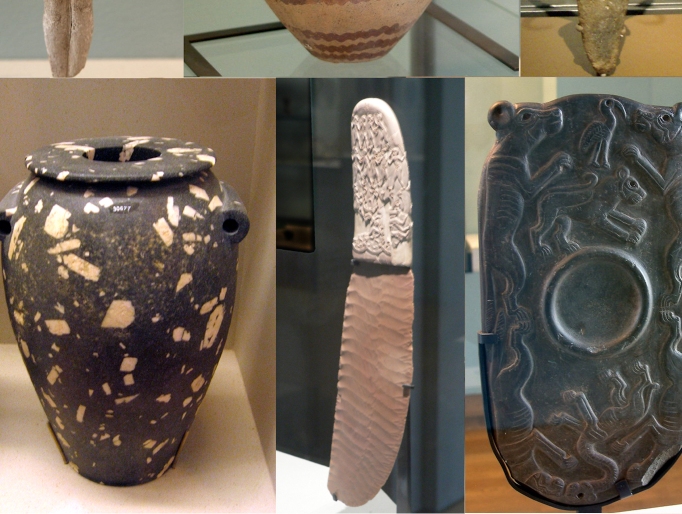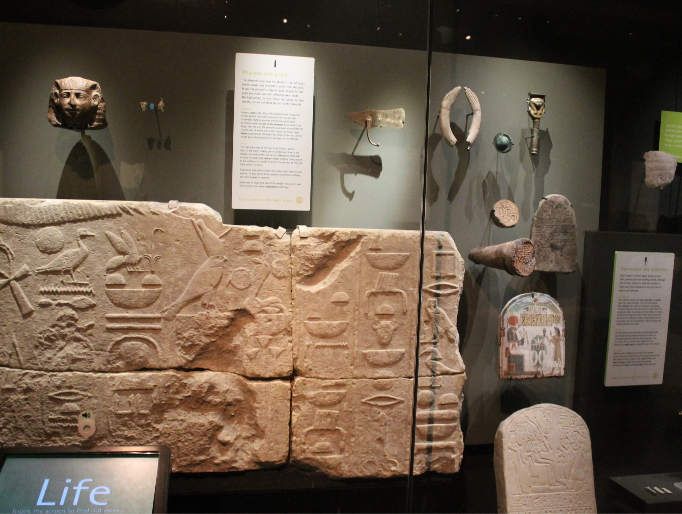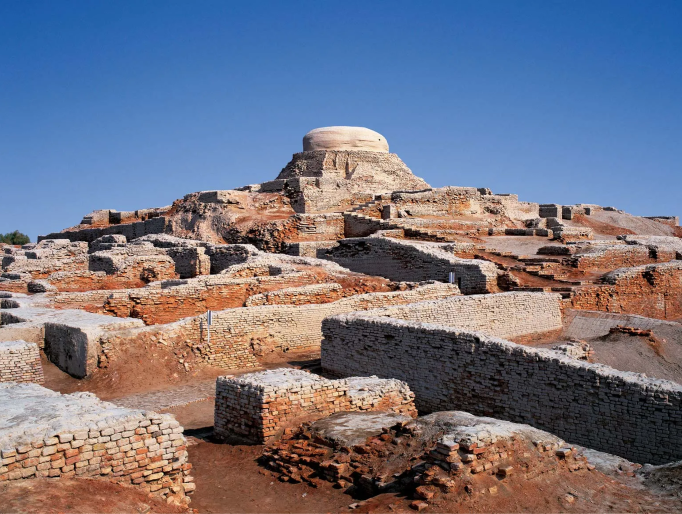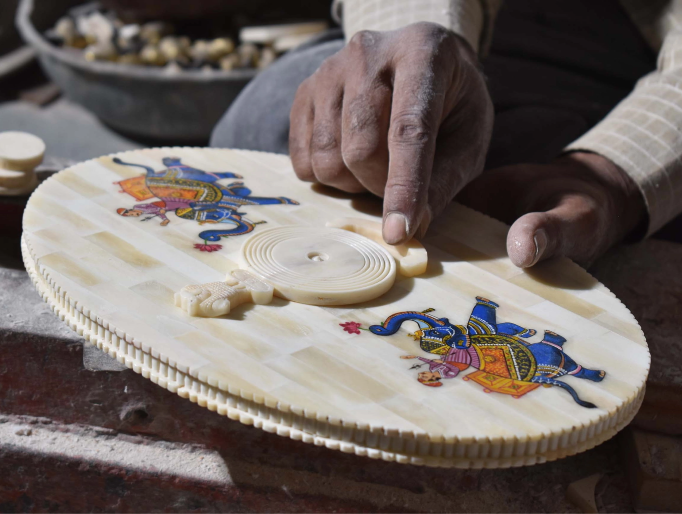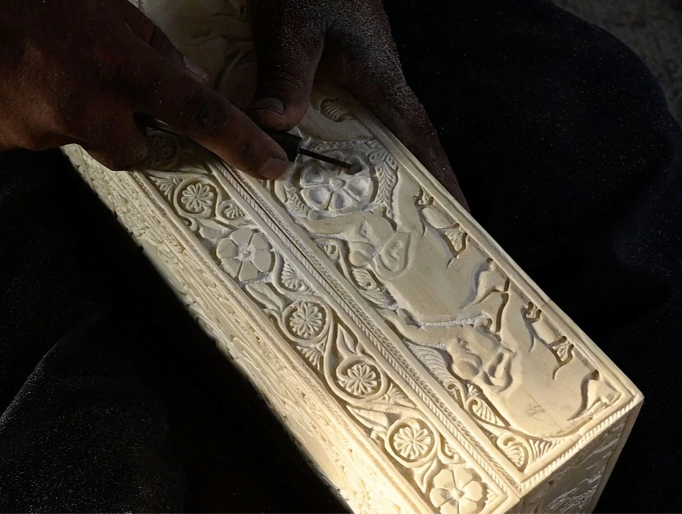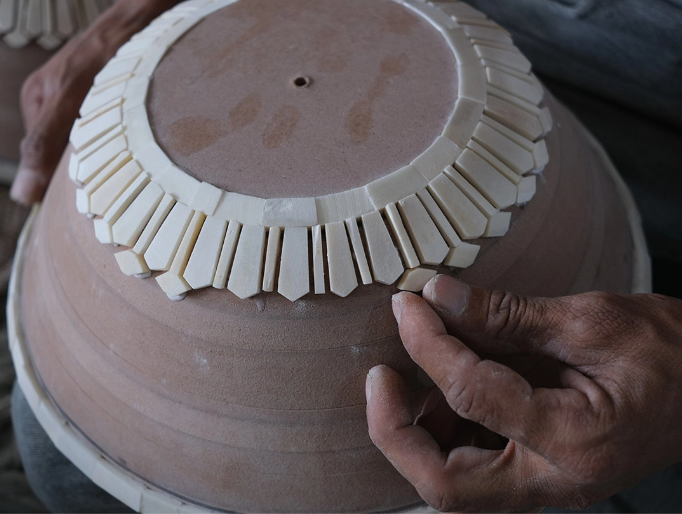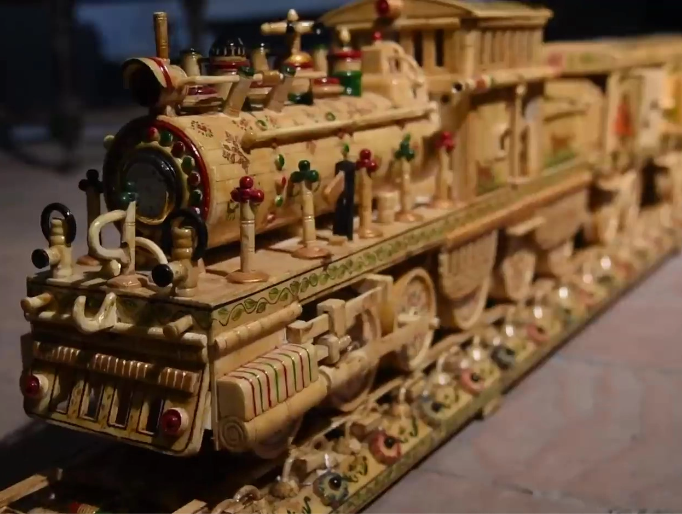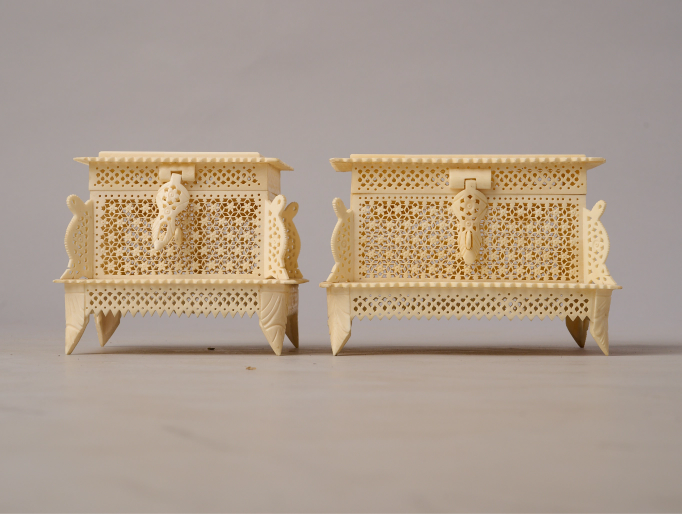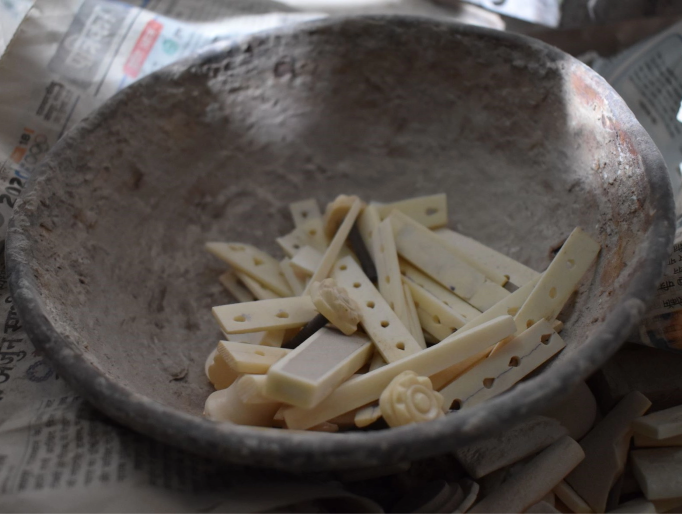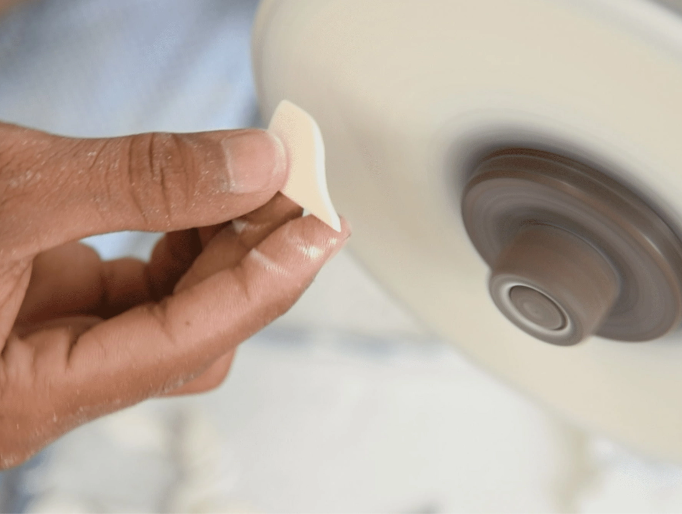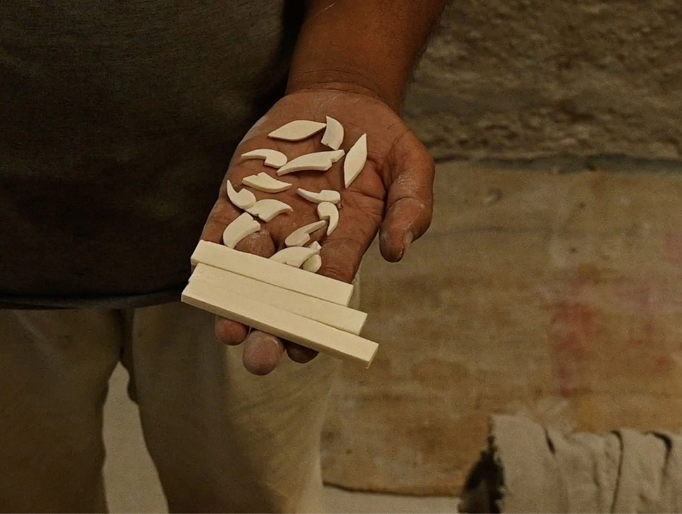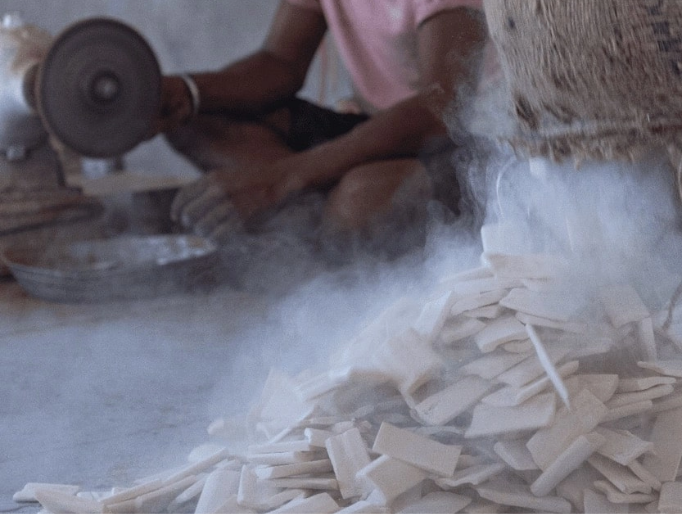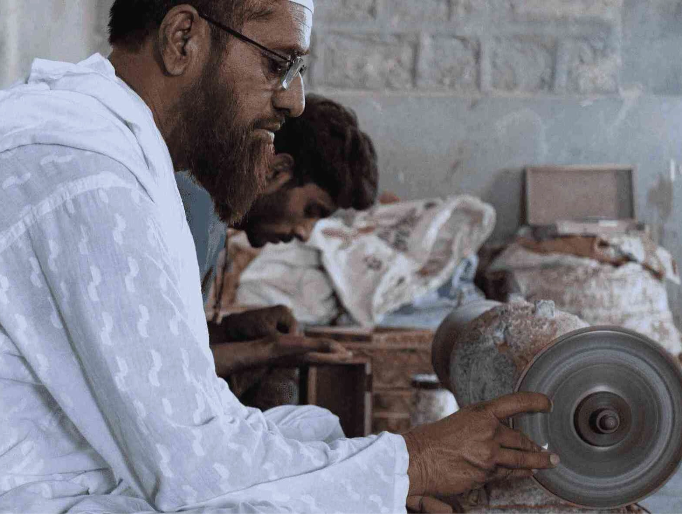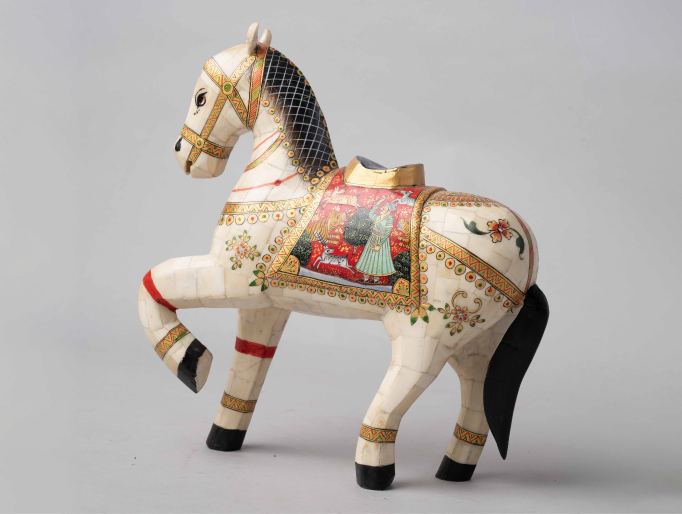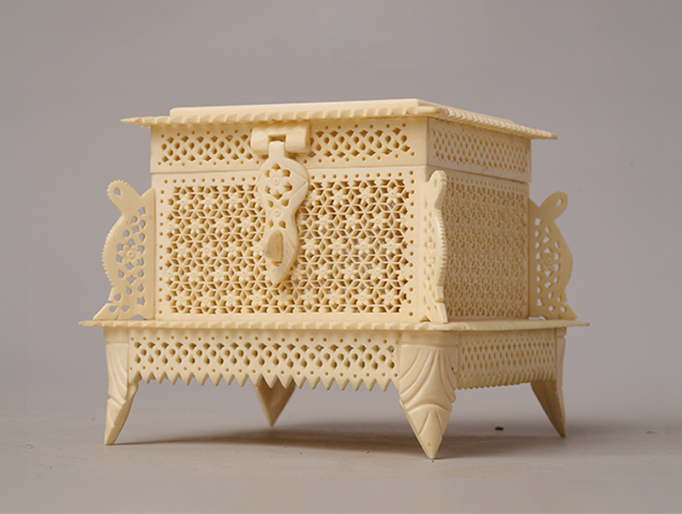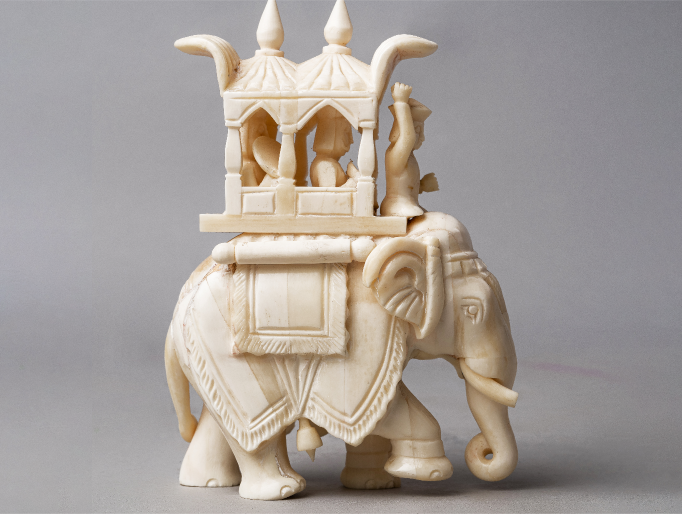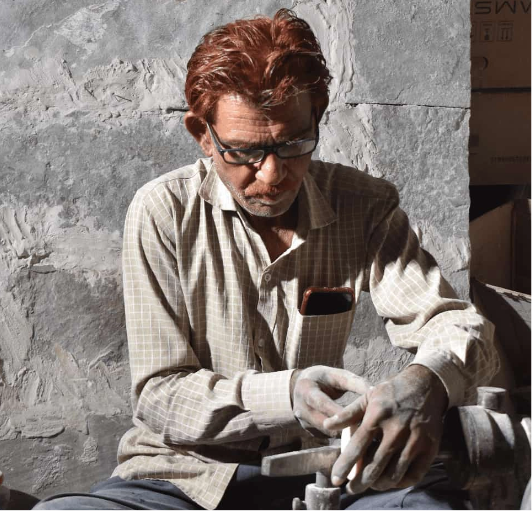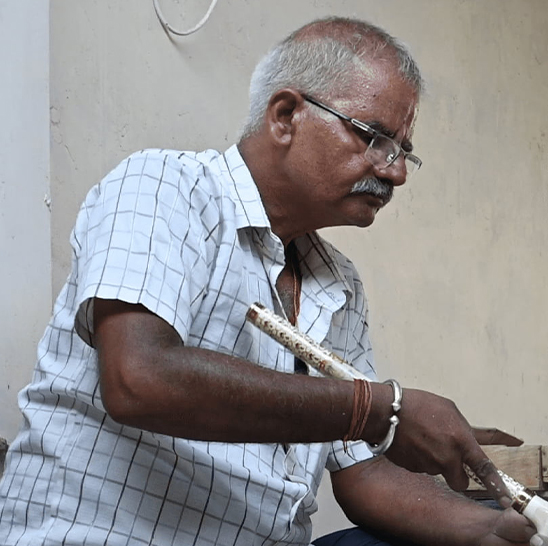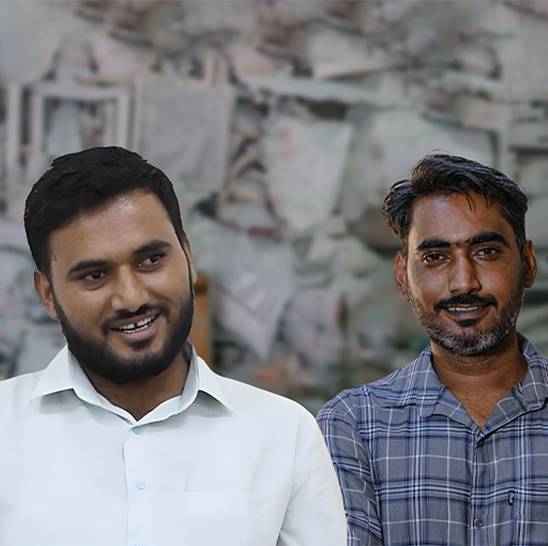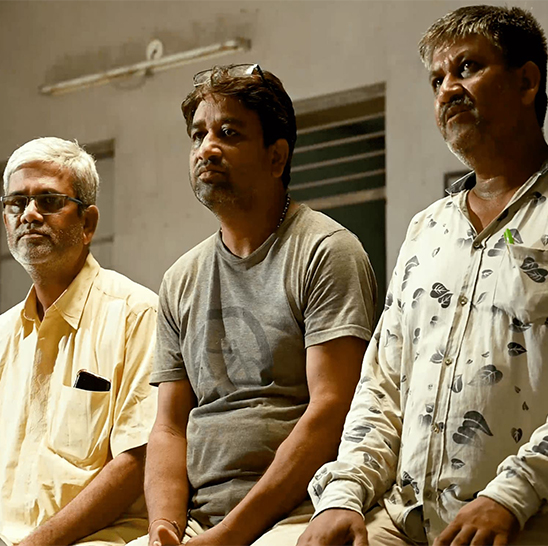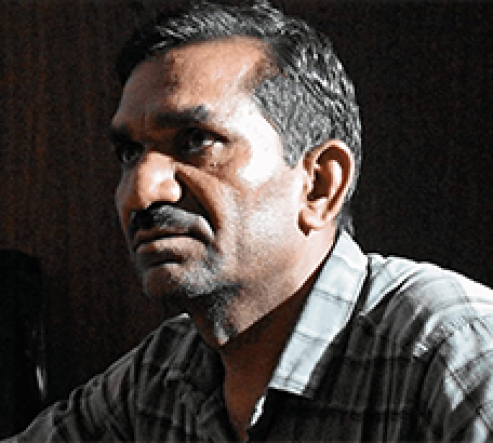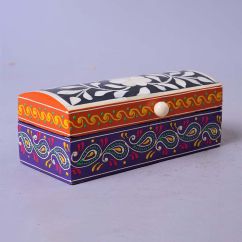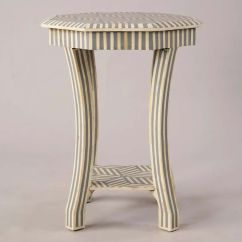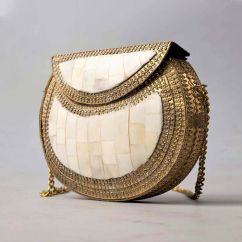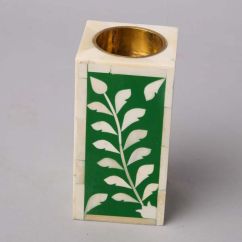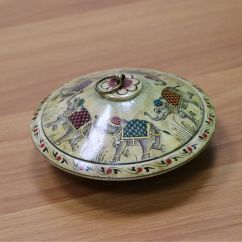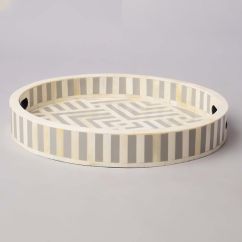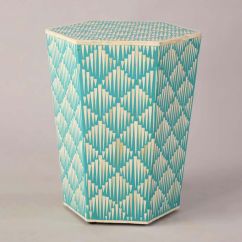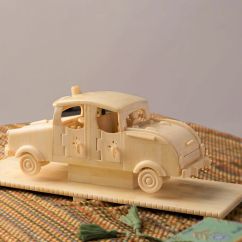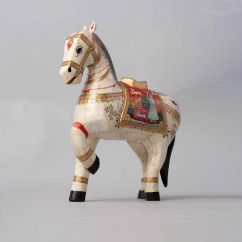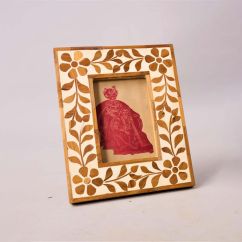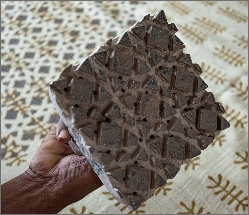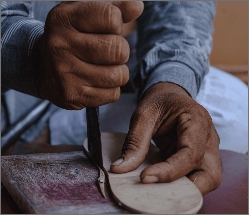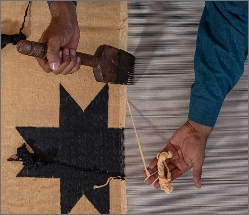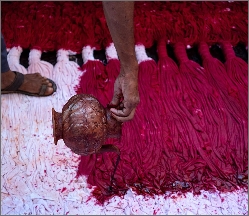BONE & HORN
STORY OF THE CRAFT
A Historical Journey of Artistic Excellence
-
This craft has a storied history where artisans utilised animal bones and horns for both practical and artistic endeavours.
-
Combs, needles, and ornaments were used centuries ago.
-
Intricate patterns and designs carved onto horn surfaces in the Northern States of Rajasthan.
-
The transformation of craft into a wide range of styles and approaches reflects the diversity and artistic traditions of the country.
-
A fusion of traditional Rajasthani motifs with influences from Mughal and Persian art.
Designing Exquisite Items from Bone and Horn
-
Involves several processes and materials are ethically sourced based on their size, texture, and suitability for carving.
-
Sketching and outlining.
Precise carving gradually shapes the materials into the desired form.
Texturing, engraving, etching, and incising enhance the visual appeal.
Polishing and smoothing of surfaces achieve a glossy and refined finish.
Colouring, finishing and Natural dyes highlight specific areas and give depth to the design.
Finally, a protective coating preserve the finish and provide durability.
Creativity and Skill of Bone and Horn Artisans
-
Furniture
Jewellery
Utensils and Cutlery
Decorative Boxes and Containers
Ornamental Figurines
Home Decor Items
Musical Instruments
Personal Accessories
Preservation of Natural Resources and Community
-
Today, the very continuity of the craft into the next generation is under threat! Preservation of this heritage helps improve the well being of the artisan communities and sustain our cultural heritage.
-
Responsible Sourcing: All materials are procured from Govt authorised sustainable and legal sources, ensuring no harm is caused to endangered or protected animal species.
Recycling and Upcycling: Utilisation of discarded bones and horns or repurposing old bone reduces waste and give new life to existing materials.
Major Occupational Health and Labour Difficulties
-
Many Bone and Horn artisans suffer from lung disease, tubercolosis and arthritic conditions.
-
Dust, particulate matter, and chemical hazards.
Ergonomic Challenges: Carving the material for a long time can hurt the body, especially the hands and back.
Working with sharp tools and machinery can lead to cuts and accidents. Limited access to safety equipment and training increases risks.
Preserving Artistic Expression
-
KALAANUBHAV is looking to encourage and promote fair trade practices to help provide fair compensation for our artisans and sustain our cultural heritage.


